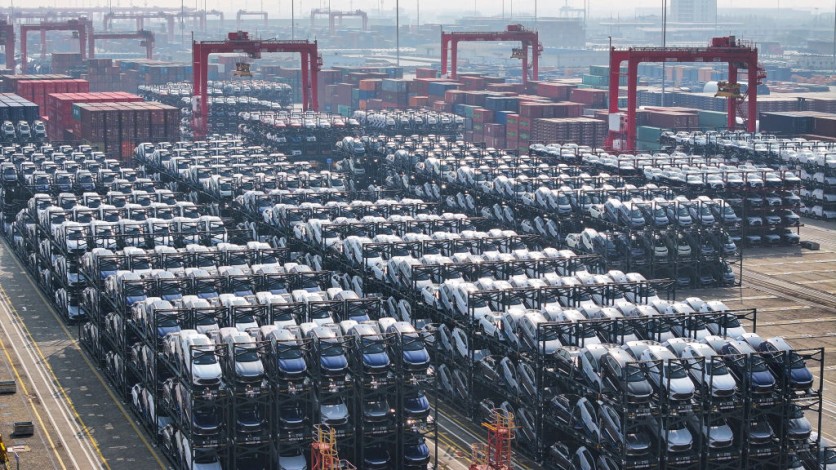There's a rising demand for car-carrying vessels in China right now. The automakers badly need a lot of ships to transport the electric vehicles to other parts of the world.
At the moment, Chinese car manufacturers are witnessing a surge in demand for EVs worldwide, prompting the need for an expanded shipping fleet to accommodate this growth.
With ambitions to export hundreds of thousands of EVs, the country is gearing up to improve its shipping infrastructure to become a dominant player in the international automotive market.
Current Shipping Fleet Status

According to data from shipping consultants Veson Nautical, China currently ranks eighth globally in terms of shipping fleet size, with 33 car-carrying vessels.
In comparison, countries like Japan, Norway, South Korea, and the Isle of Man surpass China, boasting larger fleets. However, the industry is rapidly evolving, with Chinese companies accounting for a significant portion of global ship orders. This calls for the need for expansion and modernization of the shipping mechanism.
"After this armada has been delivered to China, the Chinese-controlled car carrier fleet will jump from current 2.4% to 8.7%. We expect to see new trade routes established almost exclusively for Chinese OEMs," Veson analyst Andrea de Luca told Reuters.
Related Article : BYD Delays Construction of Electric Vehicle Factory in Vietnam Amid Market Slowdown
Expansion Initiatives by Chinese Companies
Chinese automakers, including SAIC Motor, Chery, and BYD, are actively investing in ship orders, with plans to enhance their shipping capabilities to meet escalating demand. Moreover, shipping companies like COSCO and China Merchants are securing vessels on behalf of Chinese automakers, further fueling the growth of the country's shipping fleet.
Rise of Electric Vehicle Exports
China has emerged as a dominant force in the global auto export market, surpassing Japan as the world's largest auto exporter. Companies like BYD have significantly contributed to this trend, exporting hundreds of thousands of EVs annually.
Leveraging its cost-effective supply chain, China aims to capitalize on its export capabilities, with BYD alone targeting up to 400,000 EV exports this year.
Speaking of BYD, this known Chinese car brand reportedly hit record sales in 2023. It even surpassed Tesla in Q2 sales at the time.
Challenges and Opportunities
The shortage of roll-on/roll-off (RORO) ships, essential for sea transportation of vehicles, poses a challenge to China's export ambitions.
Older vessels are being phased out, while new orders have declined due to various factors, including economic downturns and environmental regulations. Consequently, local companies are exploring options to charter or purchase ships to meet their shipping needs.
Environmental Considerations
Amid the EV export boom, concerns over carbon emissions and environmental sustainability emerge as alarming to some sectors. The shipping industry, a significant contributor to global greenhouse gas emissions, faces pressure to decarbonize and adopt cleaner fuels as part of the Paris climate goals, Electrek writes.
As EVs are transported worldwide, the environmental impact of shipping, including the emissions associated with both EVs and traditional vehicles, warrants attention.
China's endeavor to ramp up its shipping fleet accentuates its vision to be a global EV player someday. Elon Musk believes that if no trade barriers are present, Chinese automakers will "demolish" most EV makers in the world.
As demand for EVs continues to rise, investments in shipping infrastructure are crucial to facilitating seamless transportation and meeting international market demands. However, environmental sustainability and regulatory compliance remain imperative as the industry navigates towards a greener future.

ⓒ 2025 TECHTIMES.com All rights reserved. Do not reproduce without permission.




